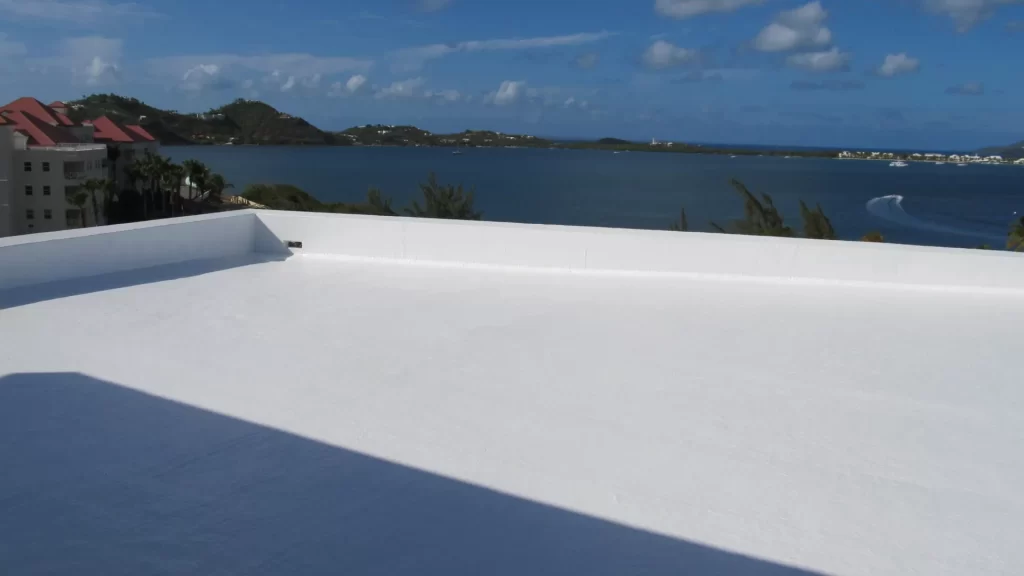When it comes to protecting your home from the elements, few things are as vital as your roof. It’s the unsung hero that shields you from rain, snow, and harsh sunlight, and it plays a significant role in maintaining the integrity of your entire house. But have you ever stopped to think about the materials that make up your roof? More specifically, have you considered the difference between traditional roofing materials and the innovative option of fluid-applied liquid membrane roofing?
In this blog, we’ll dive into the world of roofing and explore the pros and cons of both fluid-applied liquid membrane roofing and traditional roofing materials to help you make an informed decision when it’s time to replace or repair your roof.
Traditional Roofing Materials: A Time-Tested Classic
Traditional roofing materials have been used for centuries and have stood the test of time. These materials typically include asphalt shingles, wood shingles or shakes, metal roofing, and clay or concrete tiles. Let’s take a closer look at each of them:
- Asphalt Shingles: Asphalt shingles are perhaps the most common roofing material in North America. They are relatively affordable and come in a wide range of styles and colors. However, they have a limited lifespan of 20–30 years and may require periodic maintenance.
- Wood Shingles or Shakes: Wood shingles and shakes offer a rustic, timeless aesthetic. They can last up to 30 years or more but require regular maintenance to prevent rot and decay.
- Metal Roofing: Metal roofing is known for its durability, with a lifespan of 40–70 years or more. It is resistant to fire, pests, and mildew. However, it can be noisy during heavy rain and may be prone to denting from hail or falling debris.
- Clay or Concrete Tiles: These materials are often used in Mediterranean-style architecture. They are incredibly durable, with lifespans exceeding 50 years. However, they are heavy and may require additional roof support.
Traditional roofing materials have their merits, but they also come with their fair share of drawbacks. Maintenance and longevity vary depending on the material chosen, and the initial cost can be quite high, especially for premium options like metal roofing or clay tiles. Moreover, the installation process can be labor-intensive and time-consuming.
Fluid-Applied Liquid Membrane Roofing: A Modern Marvel
In recent years, a revolutionary roofing solution has gained popularity in the construction industry: fluid-applied liquid membrane roofing. This innovative system involves applying a liquid roofing material directly onto the roof deck, creating a seamless, waterproof barrier. Let’s delve into the advantages and disadvantages of this modern marvel:
Pros of Fluid-Applied Liquid Membrane Roofing:
- Seamless Waterproofing: One of the most significant advantages of liquid membrane roofing is its seamless application. This eliminates the potential for leaks and water infiltration, which is a common issue with traditional roofing materials.
- Durability: Liquid membrane roofing systems can last 20–30 years or more, rivaling the lifespan of many traditional materials. They are highly resistant to weathering, UV rays, and chemical exposure.
- Energy Efficiency: These roofing systems often come in reflective coatings that can significantly reduce energy consumption by reflecting sunlight and reducing heat absorption, which can lower cooling costs.
- Easy Maintenance: Liquid membrane roofing requires minimal maintenance compared to traditional materials. Routine inspections and occasional recoating are usually sufficient to keep it in top shape.
- Versatility: Liquid membrane roofing is suitable for flat or low-slope roofs, making it a versatile choice for various architectural designs.
Cons of Fluid-Applied Liquid Membrane Roofing:
- Initial Cost: While liquid membrane roofing may be more cost-effective in the long run due to its durability and energy efficiency, the initial installation cost can be higher than some traditional materials.
- Professional Installation: Proper installation requires skilled contractors with experience in fluid-applied roofing systems. This rules out DIY installation for most homeowners.
- Limited Aesthetics: Liquid membrane roofing may not offer the same aesthetic variety as traditional materials. It is typically used for commercial buildings or modern residential designs.
In conclusion, the choice between fluid-applied liquid membrane roofing and traditional roofing materials ultimately depends on your specific needs and preferences. Traditional materials have a long history of reliability, while liquid membrane roofing represents a modern, efficient alternative.
When making your decision, consider factors such as your budget, climate, architectural style, and the expertise of roofing contractors in Ayden. Remember that both options have their place in the world of roofing, and your choice should align with your unique circumstances and priorities.
In the end, the goal is the same: to have a sturdy, reliable roof over your head that keeps you and your loved ones safe and comfortable for years to come. Whether you choose to stick with tradition or embrace innovation, the important thing is to make an informed decision and entrust the installation to professionals who can ensure the longevity and performance of your roofing system.

